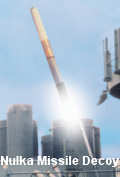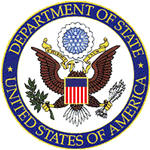 The Federation of American Scientists has received, pursuant to an FOIA request, a complete list of the unfavorable determinations from the “end-use” or “Blue Lantern” checks conducted by the State Department during FY 2002 through 2004. Under the Blue Lantern program, U.S. embassy personnel (and sometimes DDTC personnel) engage in investigations overseas to investigate suspicious export license requests and post-shipment reports of misuse or diversion.
The Federation of American Scientists has received, pursuant to an FOIA request, a complete list of the unfavorable determinations from the “end-use” or “Blue Lantern” checks conducted by the State Department during FY 2002 through 2004. Under the Blue Lantern program, U.S. embassy personnel (and sometimes DDTC personnel) engage in investigations overseas to investigate suspicious export license requests and post-shipment reports of misuse or diversion.
Annual reports from DDTC have provided some information relating to unfavorable “Blue Lantern” determinations including an analysis of unfavorable determinations by region and commodity. These reports, however, did not single out individual countries. The FOIA disclosures provide data on specific countries for FY 2002 through 2004, and the results are interesting:
| Country | Unfavorable findings |
|---|---|
| Malaysia | 15 |
| Bolivia | 10 |
| Hong Kong | 8 |
| Singapore | 8 |
| Israel | 7 |
| Guatemala | 6 |
| Indonesia | 5 |
| Saudi Arabia | 5 |
| Canada | 4 |
| Dominican Republic | 4 |
| El Salvador | 4 |
| Germany | 4 |
| India | 4 |
| Pakistan | 4 |
| South Korea | 4 |
| Switzerland | 4 |
| UAE | 4 |
| UK | 4 |
| Argentina | 3 |
| Belize | 3 |
| Costa Rica | 3 |
| Ecuador | 3 |
| France | 3 |
| Italy | 3 |
| Oman | 3 |
| Peru | 3 |
| South Africa | 3 |
| Taiwan | 3 |
| Thailand | 3 |
| Thailand | 3 |
| Australia | 2 |
| Greece | 2 |
| Honduras | 2 |
| Jordan | 2 |
| Philippines | 2 |
| Portugal | 2 |
| Russia | 2 |
Additionally, the report showed one unfavorable determination for each of the following countries: Bosnia, Botswana, Chile, Colombia, Cyprus, Czech Republic, Dominica. Grenada, Guyana, Haiti, Macau, Monaco, Morocco, Netherlands, Nicaragua, Panama, Slovenia, Spain, Suriname, Sweden, Turkey and Uruguay.
Obviously, Malaysia and Bolivia have won awards that no country would particularly want to win. In Malaysia’s case most of the unfavorable determinations related to aircraft parts. For Bolivia, the determinations involved firearms and riot control agents. Additionally, the appearance of Hong Kong as third on the list would appear to rebut the notion, frequently expressed by BIS at least, that Hong Kong has an exemplary export control program.
Now, here’s an inquiry for our readers. I am pretty sure that during a presentation on Blue Lantern by a DDTC official I heard the origin of the term “Blue Lantern” for the program. For the life of me, I can’t remember it, nor can I find it anywhere. A blue lantern is a signal, for railroad workers, that a car is being worked on and should not be moved, but that doesn’t seem a likely candidate. Nor does the use of a blue lantern by the Confederate submarine Hunley to signal that it sank the USS Housatonic seem an appropriate reference. So, does anyone know what “Blue Lantern” signifies?

 Posted by
Posted by  Category:
Category: 

 Last week DDTC posted a
Last week DDTC posted a  Lockheed Martin
Lockheed Martin  Thanks to a
Thanks to a  On Tuesday, with little fanfare and with no announcement that I could find, DDTC’s website was moved to a secret new address and went into hiding. Most export professionals had grown fond of DDTC’s unique URI:
On Tuesday, with little fanfare and with no announcement that I could find, DDTC’s website was moved to a secret new address and went into hiding. Most export professionals had grown fond of DDTC’s unique URI: 

